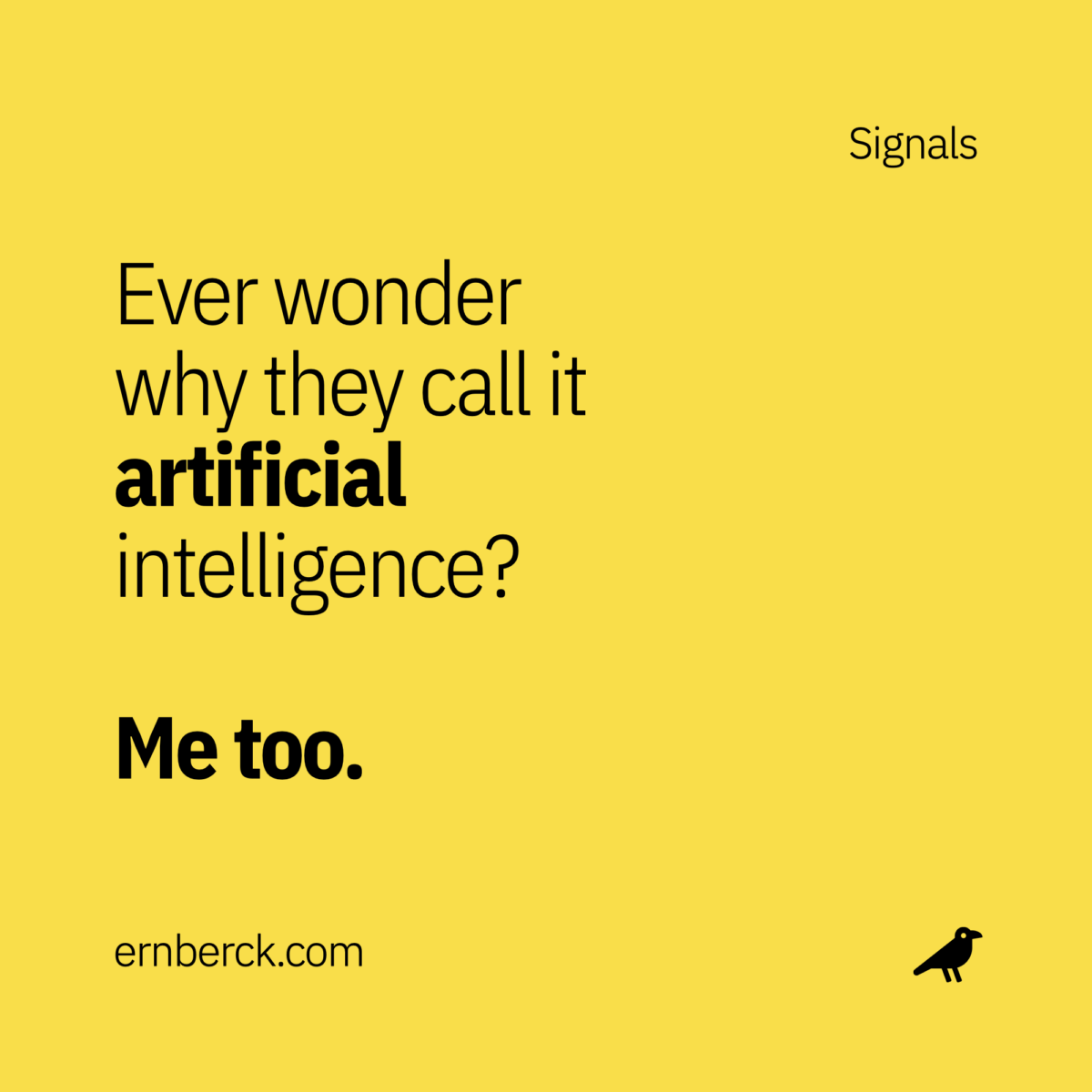Ever wonder why they call it artificial intelligence?
Me too.
The Constitutional Convention of AI
The term artificial intelligence was coined by mathematics professor John McCarthy in 1956. He introduced it during the Dartmouth Summer Research Project on Artificial Intelligence, a workshop that is considered the founding event of AI as a field. Sort of the Constitutional Convention of AI.
The workshop aimed to explore ways to make machines simulate human intelligence. McCarthy — along with researchers like Marvin Minsky, Claude Shannon, and Nathaniel Rochester — played a significant role in shaping the early development of AI.
It sounds cool
How McCarthy settled on the adjective “artificial” is a little unclear. Maybe it just sounded better than “synthetic” or “man-made.” But in any case, the choice carries subtle implications. The term doesn’t limit the nature of intelligence to machines or software — it can encompass a broad range of implementations, including robotic systems or neural networks.
Modern computing unleashed
1956 was a pivotal year that laid the groundwork for modern computing, with significant advancements in hardware, programming, and theoretical foundations. Computers were still mysterious and not well understood by the general public. They were often associated with advanced research, large-scale calculations, and futuristic visions. The seeds of technologies like artificial intelligence and high-level programming were just beginning to sprout.
I seriously doubt that these guys in Dartmouth envisioned a hoard of AI chatbots and sales agents harassing customers with email and text messages. Or following people around on the internet — looking for any opportunity to interrupt them with crappy digital ads. Remember, this was 1956. The UNIVAC and IBM 704 mainframes were just recently released.
Our thoughts
The word “artificial” carries both positive and negative connotations. It might suggest something innovative and remarkable, but it can also imply something inferior or less authentic than its natural counterpart. Maybe even sinister.
Whatever emotional weight the word “artificial” carries with it, marketing midwits have been selling half-baked AI automation tools for months. And most have little to no understanding of how they really work — or what the long-term consequences are.
